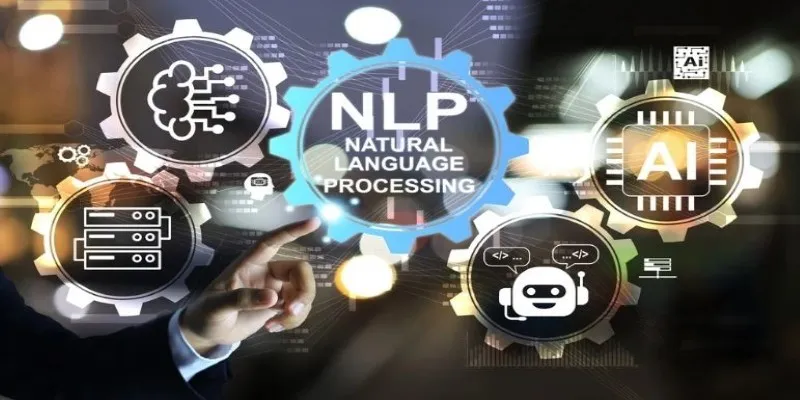Who’s Leading the AI World in 2025? Top 10 Countries Ranked
AI is a hot topic, but where is the real work happening? Not just in startups, chatbots, and flashy apps, but in serious research, deep investments, and national strategies pushing the technology forward. While some countries are just getting started, others are all-in, funding AI labs, building talent, and designing policies around it.
This article explores the 10 countries making significant strides in AI research and development in 2025. These aren’t just the places grabbing headlines; they are where breakthroughs in language models, robotics, computer vision, and machine learning are being developed and deployed on a large scale.
Let’s dive in.
Top 10 Countries Leading in AI Research & Technology in 2025
United States
The U.S. continues to lead the global AI scene. It’s home to giants like OpenAI, Google DeepMind (now largely US-based), Meta AI, Microsoft Research, and numerous university labs. Stanford, MIT, and Carnegie Mellon remain top players in AI research output.
What makes the U.S. unique is its mix of public and private investments. Tech giants have poured massive funding into developing top-tier models like GPT-4, Gemini, and Claude. Government-backed initiatives, such as DARPA’s AI Next campaign, focus on long-term AI applications in defense and science. The strong talent pool, with many top researchers educated in the U.S., further solidifies its leadership.
China
China is the main challenger to U.S. dominance, setting its own pace. Companies like Baidu, Alibaba, Tencent, and SenseTime are developing their own AI models and tools.
The Chinese government plays a central role, supporting AI development in facial recognition, urban surveillance, healthcare, and industrial robotics. China produces a massive number of AI-related research papers and patents. Institutions like Tsinghua University and the Chinese Academy of Sciences lead local innovation, with cities like Beijing and Shenzhen becoming AI hubs.
United Kingdom
The UK remains a heavyweight thanks to its early leadership and ongoing influence. DeepMind, originally based in London, helped establish the UK’s presence in AI. Oxford, Cambridge, and University College London continue to produce significant research.

The UK’s focus is balanced, spanning ethical AI, regulation, and foundational research. In 2025, it’s home to emerging LLMs, AI ethics think tanks, and public-private research initiatives. Government agencies are working on AI policy to match the pace of innovation.
Canada
Canada consistently punches above its weight in AI. Toronto, Montreal, and Vancouver host some of the world’s best AI researchers, thanks to early investments and the contributions of pioneers like Geoffrey Hinton and Yoshua Bengio.
The Vector Institute and Mila (Quebec AI Institute) are globally recognized. The Canadian government supports AI through funding programs and partnerships with academia, focusing on ethical use, healthcare applications, and natural language processing.
Germany
Germany’s AI efforts focus on industry. Research institutions like the Max Planck Society and Fraunhofer Institutes prioritize practical applications in manufacturing, engineering, and automotive technology.
With strong public funding and a strategy centered on “AI made in Germany,” the country emphasizes safety, explainability, and reliability. Companies like Siemens and Bosch are heavily investing in AI systems for smart factories, logistics, and robotics.
France
France is renowned for high-level academic research, particularly in mathematics and computer science. INRIA (National Institute for Research in Digital Science and Technology), along with École Polytechnique and Sorbonne University, leads much of the country’s AI work.
The French government’s AI policy highlights open science, fairness, and building local capacity. Paris is emerging as a European AI hub, attracting startups and researchers. Key focus areas include AI in healthcare, mobility, and environmental monitoring.
South Korea
South Korea is advancing rapidly in AI, particularly in robotics, autonomous vehicles, and smart electronics. Companies like Samsung, LG, and Hyundai are driving AI development both in research and consumer products.

Government plans, like the “AI National Strategy,” help scale up AI talent and infrastructure. Seoul is packed with tech campuses and AI accelerators. South Korea is also expanding its influence in AI chip design and edge AI, crucial for real-time applications.
Japan
Japan’s AI strength stems from its long history in robotics and automation. Tokyo remains a global center for AI research in hardware-software integration. Companies like Sony, Hitachi, and NEC invest in AI for robotics, supporting an aging society, and medical diagnostics.
The Japanese government is committed to using AI to address social issues, from labor shortages to disaster management. Institutions like the University of Tokyo and RIKEN continue to produce impactful AI research.
India
India’s AI journey is accelerating. It boasts one of the largest pools of software engineers and a growing number of AI startups. Institutes like IITs (Indian Institutes of Technology) and IIITs are expanding their AI programs. Bengaluru and Hyderabad are emerging as South Asia’s AI centers.
Government initiatives like “IndiaAI” aim to scale AI adoption in agriculture, health, and education. India’s focus is on AI-for-scale tools suited for large populations, with rising fields in speech tech, language processing for regional languages, and computer vision in public services.
Singapore
Singapore is small but influential in AI research and policy. Through national efforts like AI Singapore and the Smart Nation program, it focuses on applying AI to healthcare, finance, and city planning. Known for its structured approach, Singapore balances innovation with strict data governance and ethical AI standards.
Top universities like NUS and NTU contribute significantly to AI publications in Asia. With strong public-private partnerships and a push for responsible AI, Singapore shapes AI development across Southeast Asia.
Conclusion
AI in 2025 is a collaborative effort, not a solo race. While the U.S. and China lead, other nations are shaping the future through policy, ethics, education, and targeted innovation. From Singapore’s structured planning to Canada’s ethical focus, each country brings something unique. The real challenge isn’t just speed or scale—it’s building AI that solves real problems. The next breakthroughs will come from collaboration, not just competition.
By considering these varied contributions, we can better understand and anticipate the global AI landscape.
 zfn9
zfn9























